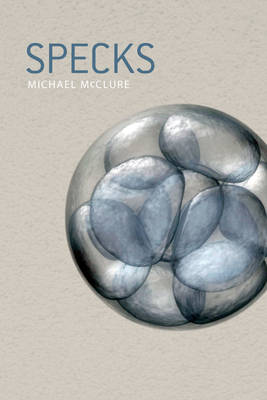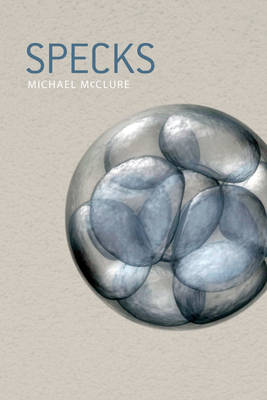
- Retrait gratuit dans votre magasin Club
- 7.000.000 titres dans notre catalogue
- Payer en toute sécurité
- Toujours un magasin près de chez vous
- Retrait gratuit dans votre magasin Club
- 7.000.0000 titres dans notre catalogue
- Payer en toute sécurité
- Toujours un magasin près de chez vous
Description
Widely noted for the popularity of his dynamic performances, Michael McClure has been celebrated since his first poetry event. At twenty-two years old, in San Francisco's legendary Six Gallery, McClure, Gary Snyder and Allen Ginsberg gave their first poetry reading--Ginsberg read "Howl" that night. McClure's writing followed his deepening environmental awareness and biological studies, and he became an outspoken advocate, through his essays, music, theatre and novels, for the protection of all living beings.
When McClure's Specks was first published in 1985 by Talonbooks, it was a revelation in terms of its transcending the proprioceptive poetic methodology of Charles Olson and entering an Aristotelian realm of metaphysical questions that alchemically combined matters both scientific and mystical. In this much-anticipated return, with incisive and bombastic projective verse, McClure's stance in the face of futurity is even more topical, as the senses of the physical-poetic body explore its properties, powers and limitations, expanding forth as the benevolent love child of its own consciousness. Specks assumes the form of a blastula, offering a poetic model of embryonic development that arises from the cellular division known as "cleavage." Specks presents groupings of ideas that mimic and challenge one another in a deep biological state. With mind aglow in recognition of muscular imagination and the intelligence of the sensorium in all its unapologetic tonality, McClure's luminous journey leaps with the grace of Muhammad Ali and Fred Astaire, and tempts the reader into the mysterious abyss of dark energy that Federico García Lorca calls duende.Spécifications
Parties prenantes
- Auteur(s) :
- Editeur:
Contenu
- Nombre de pages :
- 96
- Langue:
- Anglais
Caractéristiques
- EAN:
- 9780889226883
- Date de parution :
- 29-05-12
- Format:
- Livre broché
- Format numérique:
- Trade paperback (VS)
- Dimensions :
- 150 mm x 224 mm
- Poids :
- 158 g

Les avis
Nous publions uniquement les avis qui respectent les conditions requises. Consultez nos conditions pour les avis.






